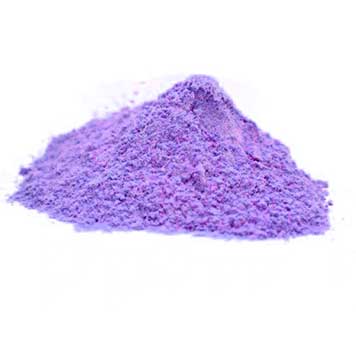
Vegetable-Based Stabilizers for Enhanced Food Texture and Quality Solutions
The Role of Vegetable Stabilizers in Food Production
In the world of food production, the quest for quality and consistency is paramount. As manufacturers seek ways to enhance the texture, shelf life, and overall appeal of their products, vegetable stabilizers have emerged as key ingredients in achieving these goals. Derived from natural sources, vegetable stabilizers offer a variety of benefits that make them attractive alternatives to synthetic additives.
Vegetable stabilizers, often made from plant-derived substances, are utilized primarily to enhance the viscosity, texture, and stability of food products. They play a crucial role in preventing the separation of ingredients, thereby ensuring that products maintain their intended consistency throughout their shelf life. Common sources of vegetable stabilizers include various types of starches, gums, and pectins derived from fruits and vegetables.
One of the most well-known vegetable stabilizers is guar gum, which is extracted from the seeds of the guar plant. Guar gum is often used in sauces, dressings, and dairy products due to its exceptional thickening properties. When added to a mixture, it absorbs water and swells, creating a gel-like consistency that improves the mouthfeel of the product. This ability to thicken solutions without altering their flavor has made guar gum a popular choice among food manufacturers.
Another significant vegetable stabilizer is xanthan gum, produced through a fermentation process involving the bacterium Xanthomonas campestris. Xanthan gum is particularly valued in gluten-free products, where it helps mimic the texture that gluten provides in traditional baked goods. It is also highly effective in stabilizing emulsions, making it a staple in salad dressings and sauces. Its effectiveness at low concentrations means that only small amounts are needed to achieve the desired results.
vegetable stabilizer

Pectin, primarily extracted from citrus fruits and apples, serves as a natural gelling agent and stabilizer in jams, jellies, and fruit-based products. Its ability to create a gel-like consistency upon heating and cooling makes it indispensable in the production of preserved fruit spreads. Pectin not only enhances the texture but also helps retain the flavor and color of the fruit, thus improving the overall sensory experience of the consumer.
The use of vegetable stabilizers can also contribute to the health benefits of food products. Many of these stabilizers are rich in dietary fiber, aiding in digestion and promoting gut health. Additionally, since they are derived from natural sources, they appeal to the growing segment of consumers who prioritize clean-label ingredients—those that are recognizable and free from artificial additives. As more consumers seek transparency and sustainability in their food choices, the demand for vegetable stabilizers is expected to rise.
Moreover, vegetable stabilizers are often versatile in their application. They can be used in a wide range of food products, including dairy, sauces, dressings, baked goods, and even beverages. This versatility allows food manufacturers to cater to diverse dietary needs and preferences, especially in an era where food innovation is constant and consumer tastes are ever-evolving.
Despite their numerous benefits, it is important for food manufacturers to use vegetable stabilizers judiciously. The effectiveness of these stabilizers can vary based on the food matrix, pH levels, and other formulation components. Therefore, thorough testing and evaluation are essential to ensure that the desired texture and stability are achieved without compromising the product's overall quality.
In conclusion, vegetable stabilizers play an integral role in modern food production, enhancing texture, stability, and consumer appeal while offering a natural alternative to synthetic additives. As the food industry continues to evolve, the inclusion of vegetable stabilizers is likely to expand, promoting both innovation and healthfulness in our diets. Embracing these natural ingredients not only supports the industry's growth but also aligns with consumer demands for healthier, more sustainable food options.
-
Why Glacial Acetic Acid Food Grade Is Essential in FlavorNewsMay.26,2025
-
Surging Export Growth of Food Additives in ChinaNewsMay.26,2025
-
How Ammonium Nitrate Fertilizer Boosts Crop YieldsNewsMay.26,2025
-
How 1,2,3-Benzotriazole Shields Plastics from UV DegradationNewsMay.26,2025
-
Cyanide in Gold Mining: Protecting People and the PlanetNewsMay.26,2025
-
Aluminum Hydroxide in Modern Sunscreen FormulationsNewsMay.26,2025
-
Understanding Synthetic Rubber OptionsNewsApr.27,2025
Hebei Tenger Chemical Technology Co., Ltd. focuses on the chemical industry and is committed to the export service of chemical raw materials.
-

view more DiethanolisopropanolamineIn the ever-growing field of chemical solutions, diethanolisopropanolamine (DEIPA) stands out as a versatile and important compound. Due to its unique chemical structure and properties, DEIPA is of interest to various industries including construction, personal care, and agriculture. -

view more TriisopropanolamineTriisopropanolamine (TIPA) alkanol amine substance, is a kind of alcohol amine compound with amino and alcohol hydroxyl, and because of its molecules contains both amino and hydroxyl. -

view more Tetramethyl Thiuram DisulfideTetramethyl thiuram disulfide, also known as TMTD, is a white to light-yellow powder with a distinct sulfur-like odor. It is soluble in organic solvents such as benzene, acetone, and ethyl acetate, making it highly versatile for use in different formulations. TMTD is known for its excellent vulcanization acceleration properties, which makes it a key ingredient in the production of rubber products. Additionally, it acts as an effective fungicide and bactericide, making it valuable in agricultural applications. Its high purity and stability ensure consistent performance, making it a preferred choice for manufacturers across various industries.











